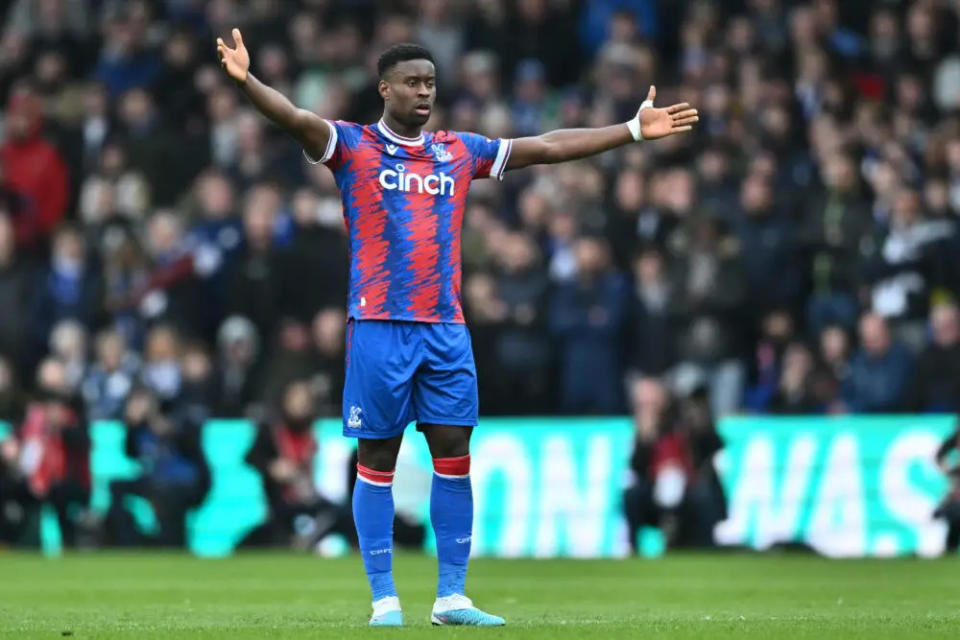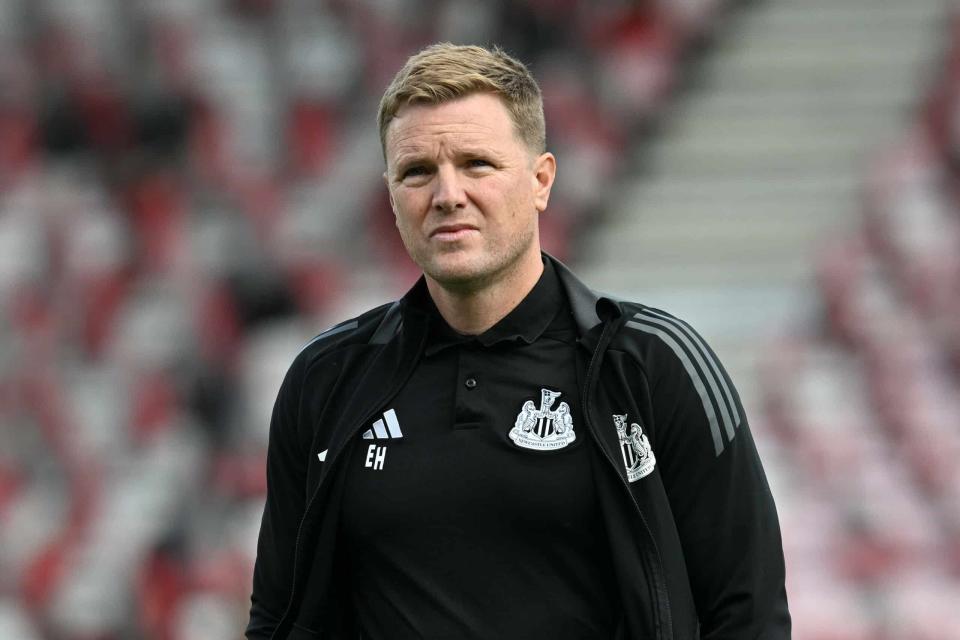Report: Newcastle Walk Away from £70m Deal to Avoid Overpaying

Newcastle United’s Pragmatic Approach in the Transfer Market: Drawing a Line in the Sand
Newcastle United’s summer transfer window was marked by restraint, as they backed away from a £70m deal for Crystal Palace’s Marc Guehi. While fans may have been frustrated by the lack of significant signings, The Telegraph reports that the decision was part of a broader strategy by Newcastle’s sporting director, Paul Mitchell, to avoid what has been referred to as a “Newcastle tax” on transfers. This tax, or inflated prices for players, has become a frequent issue for the club since its takeover by Saudi Arabia’s Public Investment Fund.

Mitchell’s decision to step back from the Guehi deal reflects a conscious choice to focus on long-term sustainability rather than short-term gains. He believes that paying inflated fees for players would have a detrimental effect on the club’s growth and finances in the long run. “Is there a point of value for every single player?” Mitchell asks. “For this club to come out and say actually, we really liked this player and thought he could have brought benefit to this squad, but [ask] is it at any cost?”

This pragmatic approach marks a clear shift in the way Newcastle are conducting their business. After a period of heavy spending, including the acquisitions of Bruno Guimarães and Alexander Isak, the club is now focusing on creating a financially sustainable model that balances the need for on-field success with economic prudence.
Balancing Ambition and Financial Responsibility
Mitchell has made it clear that Newcastle are not lacking in ambition. The club still has high hopes for challenging the Premier League’s elite and securing European football in the coming seasons. However, the days of reckless spending are over, as the club looks to avoid penalties associated with Financial Fair Play (FFP) regulations and Profit and Sustainability Rules (PSR). “It’s about setting precedents to the market that we will pay fair value for the right profile [of player] for sure,” Mitchell explained.
In modern football, sustainability is crucial, and Mitchell’s strategy is designed to ensure that Newcastle remains competitive without jeopardising their financial future. The temptation to splurge on big-name signings is ever-present, especially with the pressure to deliver results, but Mitchell is clear that his role is to protect the club’s long-term interests. “It shouldn’t be misconceived of a lack of ambition… We’re not going to spend, spend, spend. That isn’t good leadership, that isn’t being a good custodian of the club.”
Mitchell’s reluctance to sanction big-money moves, unless they represent genuine value for money, aligns with Eddie Howe’s own views. Howe has reportedly been supportive of Mitchell’s strategy, recognising that overpaying for players could lead to future restrictions on spending. As Mitchell puts it, “I think Eddie [Howe] even said this in the pre-match against Southampton, we’d rather not overpay. That once again in the next window could become a limiting factor for the future.”
Eddie Howe’s Future and the Links to England
Amidst the cautious transfer strategy, another point of speculation has been the future of Eddie Howe as Newcastle’s head coach. Reports linking Howe to the England manager’s job have intensified, with Gareth Southgate’s tenure potentially coming to an end after the next major tournament. While such speculation might unsettle some clubs, Mitchell is unfazed by the interest in Howe, viewing it as a testament to the impressive work the manager has done at Newcastle.

“I’m excited to work with Eddie,” Mitchell said. “The way I look at interest in general is that it’s proof that someone’s doing a really great job. I think Eddie getting recognised with a job like that, because of the work he’s done, is fair recognition for the really good job that he’s done.”
Howe’s success at Newcastle, building the club into a side capable of competing for European places, has undoubtedly attracted attention. Still, Newcastle are determined to keep him in charge for as long as possible. Howe has a significant release clause in his contract, making any potential move to the England job financially challenging for the FA. Nevertheless, the links to the national team illustrate Howe’s growing reputation as one of the top English managers in the game today.
Navigating the New Reality: The Challenges of Recruitment
Newcastle’s shift towards a more data-driven approach to recruitment also highlights the changing dynamics of football transfers. Mitchell has been candid about the need for Newcastle’s scouting and recruitment practices to evolve. “Should our scouting and recruitment be driven more extensively with a wider reaching net? It definitely should be because this is becoming a really nuanced space now,” he remarked.
With a broader approach to scouting, Mitchell believes Newcastle can identify emerging talent before they become prohibitively expensive. This method could prove crucial in future windows, allowing Newcastle to secure top players without paying inflated prices. However, the current challenge lies in balancing the immediate need for reinforcements with a long-term vision. Mitchell admitted that Newcastle’s inability to add to the first-choice XI during the summer was frustrating, but he remains confident that the squad, led by Howe, can achieve its objectives this season.
The emphasis on sustainability and careful planning contrasts sharply with Newcastle’s previous transfer activity under the Saudi ownership, where marquee signings were made to signal the club’s intent. Now, the focus is on making smart, considered moves that will benefit the club in the long term. Mitchell’s comments make it clear that Newcastle are looking to build a foundation for sustained success rather than chasing short-term glory at the expense of financial stability.
Our View – EPL Index Analysis
This approach might be difficult to accept for Supporters, especially after the club’s recent rise and the excitement surrounding the Saudi-backed takeover. The desire for instant success is understandable, but Mitchell’s long-term strategy could be the key to ensuring Newcastle remains competitive in the years to come.
The decision to walk away from the Marc Guehi deal may feel like a missed opportunity. After all, Guehi is a highly-rated centre-back who could have strengthened the squad, and watching other Premier League clubs spend lavishly during the transfer window only adds to the frustration. As former captain Alan Shearer put it, the window was “embarrassing” for Newcastle, with no significant additions made to the starting XI.
However, there is logic in Mitchell’s caution. Overpaying for players now could limit the club’s ability to strengthen in the future, particularly with FFP rules in place. Mitchell’s decision to avoid paying the “Newcastle tax” sends a message to other clubs that Newcastle will no longer be taken advantage of in the market. It’s a sensible, albeit less glamorous, approach to recruitment that could pay dividends in the long term.
Still, the lack of new signings does place pressure on the current squad to deliver results. Howe’s side will need to perform consistently to secure European football this season, and any injuries or dips in form could expose the lack of depth in key areas. For now, Newcastle fans will have to trust that Mitchell’s strategy is the right one, even if it means waiting a little longer for the marquee signings that many had hoped for.

 Yahoo Sports
Yahoo Sports 
